What We Did On Our Summer Vacation: 2019 Edition
As the pK-12 Action Group launches full force into the new academic year, we once again take the opportunity to look back at all the amazing things our community accomplished over the long summer months, all over the world. The following is a collection of reports from the many departments, labs, and centers on campus that make up our pK-12 community:
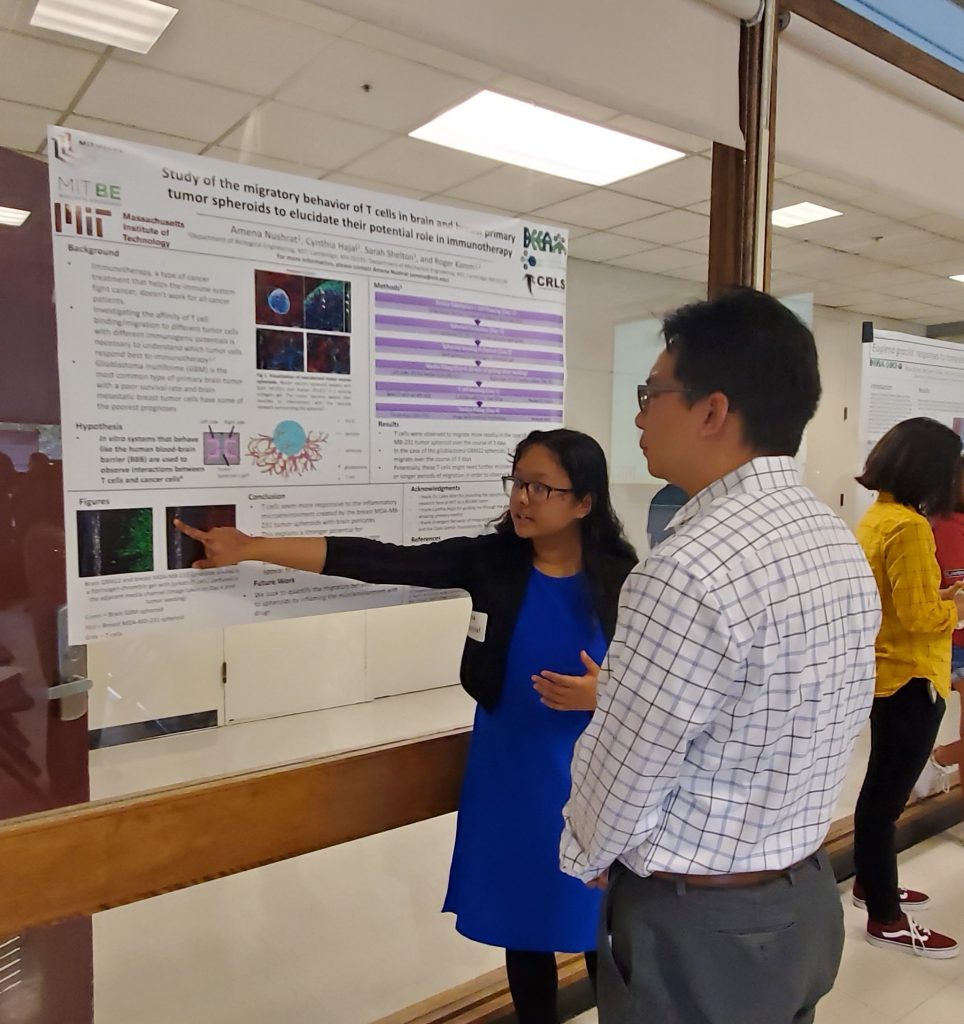
Broadening Engagement through Engineering At MIT (BEEAM)
BEEAM is a newly launched year-round high school science education and research intern program, designed for rising juniors and seniors from Cambridge Rindge and Latin High School, developed by MIT in conjunction with the National Science Foundation Science and Technology Center on Emergent Behaviors of Integrated Cellular Systems (EBICS). Throughout the summer, high school-aged interns conducted research and received invaluable mentoring from professors and researchers in MIT’s Biological Engineering, Mechanical Engineering, and Biology departments. On August 14th, the interns had the opportunity to present their work as part of the BEEAM Summer Research Symposium Finale, the culmination of many months of hands-on research, professional development activities, team-building exercises, and workshops. The Summer Research Symposium was an unqualified success, and CRLS students look forward to presenting their research projects to a larger audience in the spring.
Edgerton Center
K-12 Maker goes to Chile: Part II – For the second camp season in a row, instructors from the MIT Edgerton Center, MIT MechE, and La Fundación Mustakis watched Chilean teens who never held a drill before transform into eager builders crashing camp early to squeeze in more shop time. Makers Musicales gets musical teens hooked on STEAM by introducing them to the organized chaos of making: kids got a crash course in carpentry, circuitry, and the physics of sound, then worked in teams to design, build, and play their own instruments. The results? Check out this (Spanish-language) video from the January camp season in Santiago, Chile to find out!
Be sure to keep an eye on Edgerton Center’s STEM projects download page for the forthcoming release of free materials from the Fundación Mustakis course in English and Spanish, which will appear as part of the Center’s 2019 catalog revision.
Engineering Design Workshop 2019 – High school students in this summer’s EDW (the Engineering Design Workshop) created everything from powered cargo tricycles to oddly-shaped musical instruments to toys designed to help children through physical therapy. The program is a 5-week introduction to the design process, teaching students skills, finding creative ways to generate ideas, and reinforcing the importance of iterating on a design. Open to rising-9th through rising-12th grade students, applications open in April with a flexible fee structure so that anyone selected for the program can attend. More information and video about the program can be found on the Edgerton Center website.
MIT AppInventor
From August 1-3 MIT App Inventor celebrated its 10th anniversary at MIT with a Summit held at the Media Lab. The presentations included a panel of the original Google team that first created App Inventor under the guidance of MIT CSAIL’s Prof. Hal Abelson. Awards were presented to the middle school and high school winners of the Youth Mobile Power App Challenge competition. More info about the Summit can be found here.
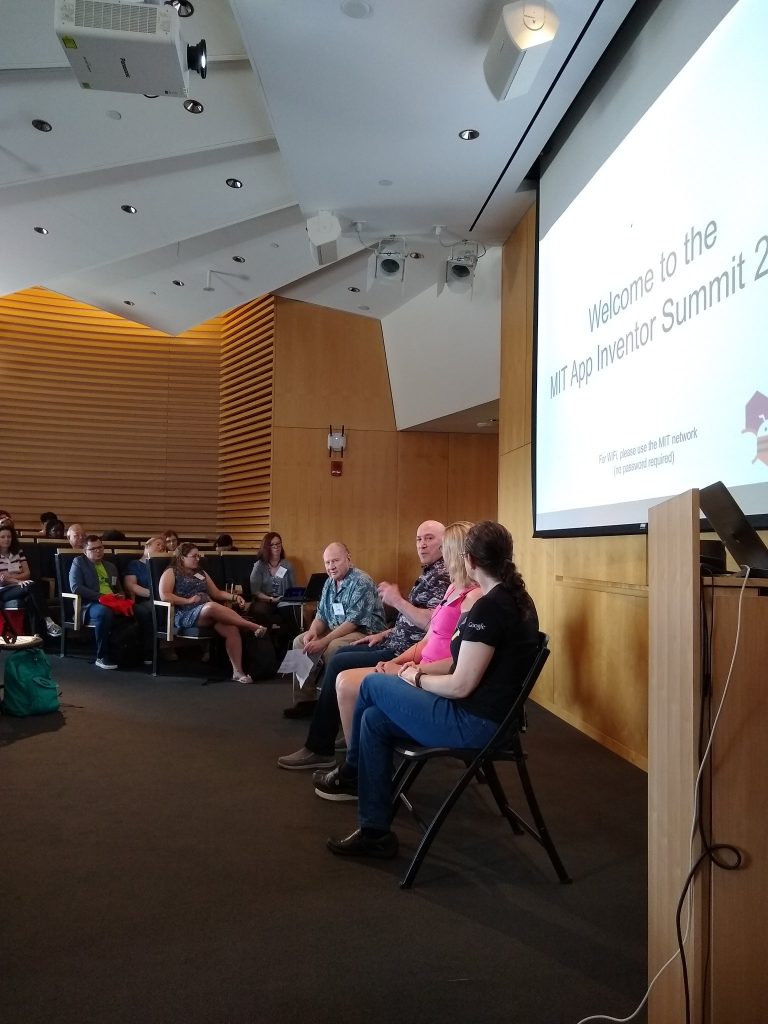
MIT Educational Studies Program
This summer the Educational Studies Program (MIT ESP) ran its seven-week Summer HSSP Program on campus. Around 500 middle and high-school students attended a variety classes taught primarily by the MIT undergraduate and graduate community, but also by educators from colleges and universities throughout Greater Boston, including Boston University, Wellesley, Amherst, and Berklee. Subjects taught included Hip Hop, Macroeconomics, Quantum Computing, Music Composition, and Epidemiology. Summer HSSP teachers were given the opportunity to hone their skills in teaching long-term to a younger demographic, and our students had the opportunity to experience the MIT campus and make more long-term connections with their peers and teachers.
MIT Summer Youth Employment Program
The 2019 MIT Summer Youth Employment Program, sponsored by MIT Human Resources, concluded a fantastic summer in which 15 Cambridge youth worked at MIT for over six weeks. HR partnered with local youth organizations, including Just-A-Start, Cambridge Housing Authority, and the City of Cambridge Office of Workforce Development, and oversaw an approximately fifty percent increase in participation from the 2018 iteration. The program was run by MIT HR’s tirelessly dedicated Megan Chester, in collaboration with Rohan Kundargi, K-12 Community Outreach Administrator at the Office of Government & Community Relations.
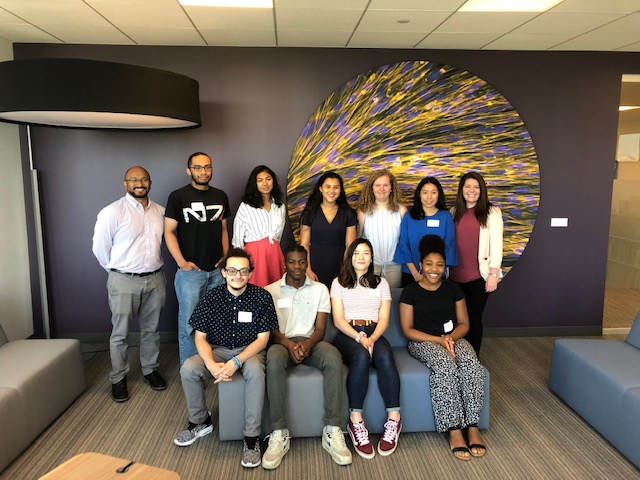
Playful Journey Lab
This summer the Playful Journey Lab welcomed the first cohort of Summer Journeyers! From graduate students to experienced teachers, the group brought a diverse set of backgrounds and interests to the lab. They worked collaboratively on projects directly connected to the lab’s work, and on their own independent projects. The program’s goals include opening up the lab to more people passionate about education, building a community of collaborators and friends, and developing rapid prototypes and resources to experiment with new ideas for the lab’s work. The summer was full of light-up crowns, RPGs, and piñatas—and great discussions about robot babies, using AI in schools, and persisting through the design process. While many of the projects are still works-in-progress, we’re excited to share them here in their alpha stage in the hopes that others will remix these ideas and engage in conversations about the future of assessment and learning. More will be posted later this month but check out some examples at https://playful.mit.edu/summer-journeyers-2019/
Scheller Teacher Education Program – Science and Engineering Program for Teachers (SEPT)
This year, over 50 teachers from across the United States, Spain, South Africa, Germany, Grand Cayman, Brazil and Argentina arrived on MIT’s campus in early July to participate in the 30th Anniversary of our annual week-long Science and Engineering Program for Teachers (SEPT). 15 MIT professors representing departments, labs, and centers across campus gave insightful talks about their work and provided the teachers with powerful learning experiences. Highlights included talks from: Hal Abelson, Professor of Computer Science and Engineering in the Department of Electrical Engineering; Peter Senge, Senior Lecturer, Leadership and Sustainability, MIT Sloan School of Management; Dava Newman, Apollo Professor of Astronautics and Engineering Systems; Kerri Cahoy, Associate Professor Of Aeronautics and Astronautics; Cynthia Breazeal, Associate Professor of Media Arts and Sciences, MIT Media Lab; and John Gabrieli, Grover Hermann Professor, Health Sciences and Technology; Professor, Brain and Cognitive Sciences.
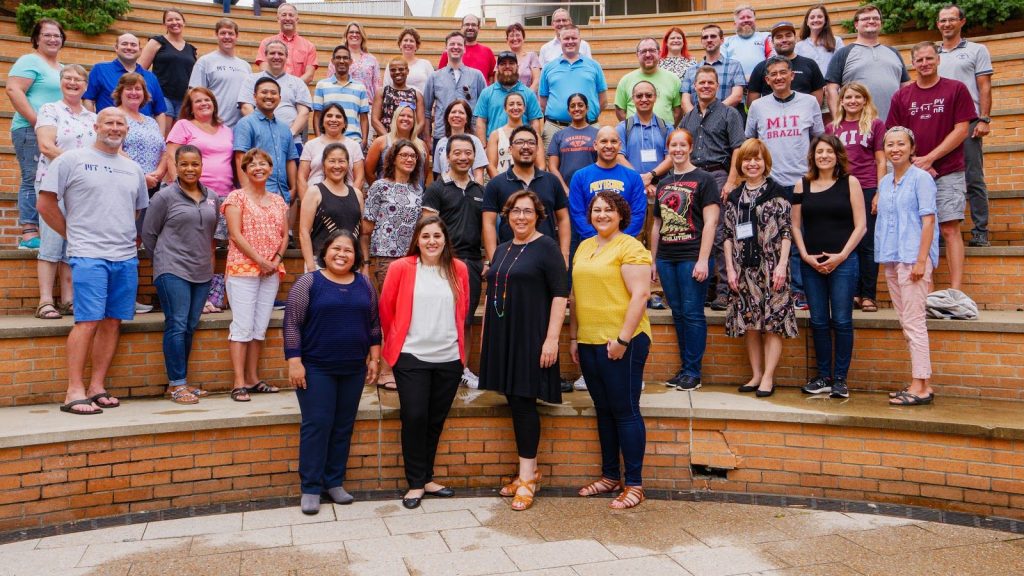
STEAM Camps
This year the pK-12 Action Group brought together 13 MIT student facilitators from all over campus, as well as educators and researchers from the Abdul Latif Jameel World Education Lab (J-WEL) and Playful Journey Lab for another immensely successful summer of MIT STEAM Camps.
Now in its third year, the STEAM camp program has expanded beyond its original base in Hong Kong and launched successful pilot programs in Athens and Suzhou. Like Catalyst Education Lab, host of the Hong Kong camp, the Athens and Suzhou programs are organized through J-WEL by their member organizations Mathisi Institute (Greece) and Hsuan Huai Institute (China). This year, new modules created explored the theme of “Air”, using everything from wind tunnels to cube satellites to indigenous Australian musical instruments as a means of teaching STEM concepts to middle school-aged students. Adaptable to their local settings and specific curricular needs, the STEAM camps are united in their mission of getting students excited about science through hands-on, minds-on learning.
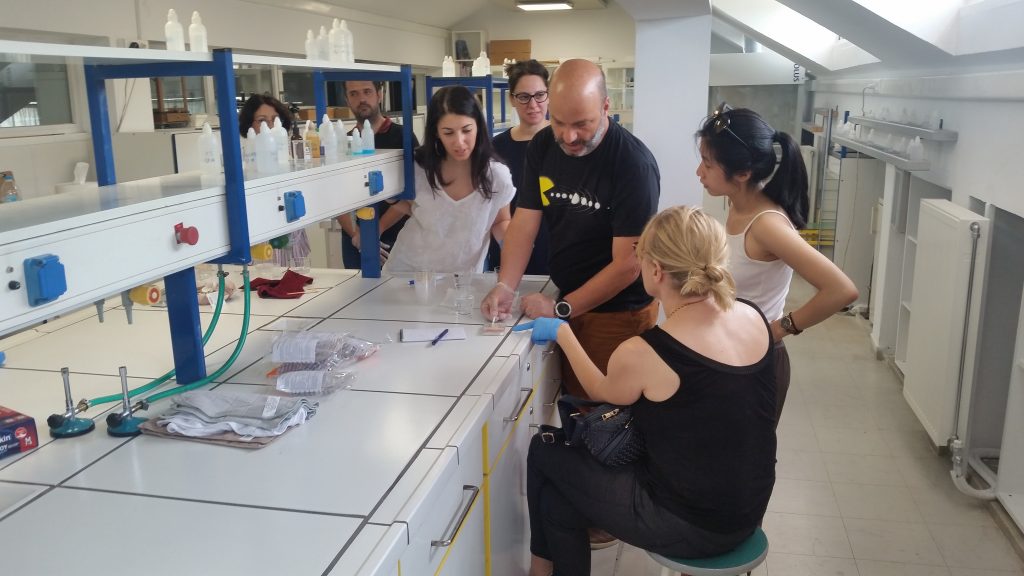

Comments are closed.